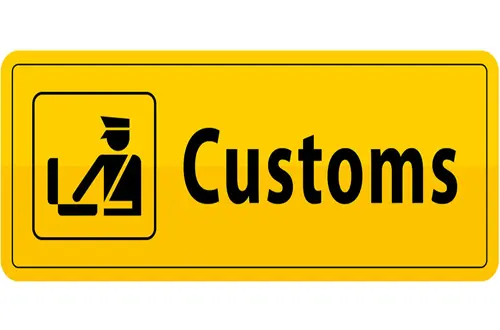Latest Adjustments to Customs Declaration Form Filling Specifications
In the process of global trade, the correct filling out of international logistics customs declaration forms is particularly important. On March 14, 2024, the customs announced adjustments to the specifications for filling out international logistics declaration forms, aiming to improve customs clearance efficiency, simplify the process, and better serve the vast number of import and export companies.
This adjustment to the customs declaration form filling specifications will take effect from April 10, 2024. The customs has comprehensively sorted out and optimized the filling specifications for international logistics declaration forms, mainly involving adjustments to column names, declaration statements, deletion and addition of columns, filling specifications, and the number of commodity items.

The adjustment of the customs declaration form filling specifications aims to make the customs declaration form more concise and clear, improve the efficiency of customs clearance, and better adapt to the needs of the development of international trade. If you are a practitioner in the international trade or logistics industry, please continue reading to see what adjustments and cooperation you need to make.
Detailed explanation of adjustments to customs declaration form filling specifications
Gross weight and net weight reporting requirements
Previously, the requirements for filling in the "gross weight (kilogram)" and "net weight (kilogram)" in the import and export goods declaration form were to fill in the whole kilogram, and fill in "1" for less than one kilogram. Now, the filling requirements for these two items have been adjusted to be accurate to 2 decimal places. That is, the total weight of the import and export goods and their packaging materials must be reported. The unit of measurement is kilograms. If the weight is less than one kilogram, the weight shall be accurate to 2 decimal places.
This not only ensures that the declared data is accurate, but also makes the data more granular. Customs will be able to more accurately grasp the actual weight of imported and exported goods, and make a more accurate assessment of the value and taxes of the goods. This greatly reduces errors and disputes caused by inaccurate data and makes the declaration work smoother.
Delete 3 declaration items
Three declaration items related to inspection and quarantine have been deleted, including "inspection and quarantine acceptance agency", "port inspection and quarantine agency" and "certificate-issuing agency".
It effectively reduces the tedious links in the declaration process and reduces the declaration cost and time cost of enterprises. It helps to improve the level of trade facilitation, significantly improves customs clearance efficiency, and creates more convenience for enterprises’ international trade activities.
Adjustments to destination inspection and quarantine authorities
Change the name of the declaration item of "Destination Inspection and Quarantine Authority" to "Destination Customs". This declaration column is conditionally required. If the relevant laws, administrative regulations, international treaties or trade contracts stipulate that imported goods are subject to inspection, quarantine or supervision, it is required when reporting.
This adjustment will help enhance the customs’ ability to supervise imported goods. By clarifying the destination customs, the customs can carry out risk management in a more targeted manner to ensure that imported goods comply with relevant regulations and standards, thereby safeguarding national security and consumer interests.
Adjustment of inspection and quarantine names
Change the declaration item name of "Inspection and Quarantine Name" to "Supervision Category Name", and the filling requirements remain unchanged.
The adjustment measures are aimed at promoting trade compliance and facilitation. By standardizing declaration behavior and streamlining declaration columns, we can reduce confusion and misoperations caused by enterprises during the declaration process, and reduce trade obstacles and risks caused by declaration issues. At the same time, this will also improve the efficiency and accuracy of customs law enforcement and provide strong support for the healthy development of international trade.
These adjustments are very important for both customs brokers and logistics practitioners. If you do not comply with these new regulations when filling out the customs declaration form, it may result in customs declaration errors, which will affect the customs clearance and transportation of the goods. Therefore, it is important to note and adhere to these adjustments.
Enterprises should promptly understand and master the new regulations to ensure accurate filling of customs declaration forms. At the same time, strengthen communication with customs and keep abreast of changes in customs clearance policies in order to better cope with logistics challenges.
If you do not understand these operations, it is recommended that you consider using a professional third-party logistics service provider to assist in completing customs declaration operations. Service providers like chinadivision have rich industry experience and professional knowledge and can quickly adapt to new customs declaration regulations. This ensures the accuracy and efficiency of customs declaration, while helping to ensure that your logistics process goes smoothly and reducing the burden on the enterprise.
By entrusting a third-party logistics service provider to perform customs declaration, enterprises can not only reduce internal work pressure, but also reduce risks caused by improper operations. At the same time, chinadivision logistics service providers maintain close communication with relevant departments such as customs and can keep abreast of changes in customs clearance policies, provide enterprises with more comprehensive and professional services, and better cope with logistics challenges.





